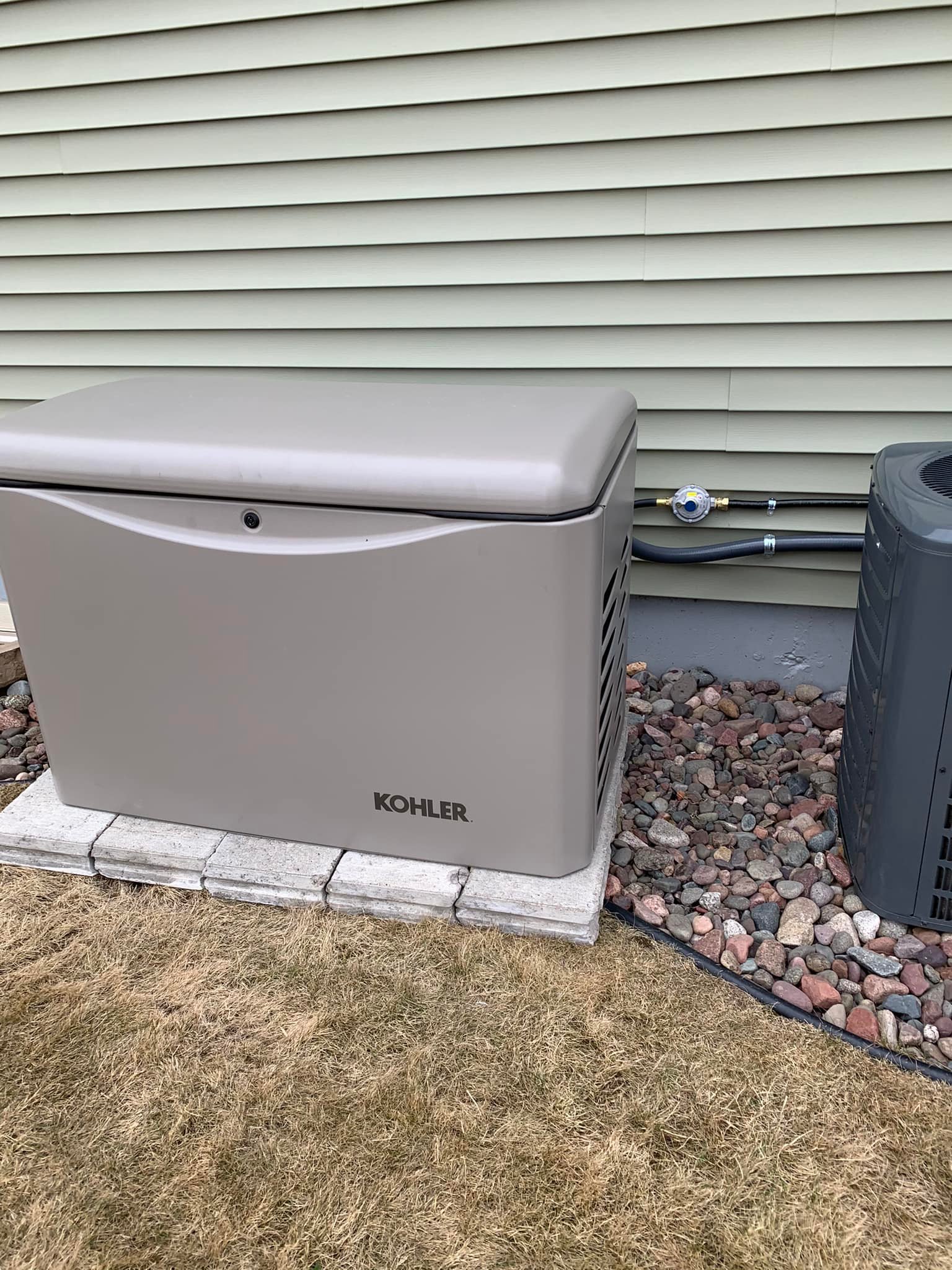Serving all of Bergen County, New Jersey
Home Wiring Upgrades
Learn more about how home wire upgrades can benefit you
Home Generators
Learn more about the benefits of home generators
Home EV Chargers
Learn more about how to upgrade to a EV Home Charger
Service Guides
Learn more about wiring upgrades for your home
Understanding Home Generators
As power outages become a growing concern for homeowners, many are left wondering: What exactly are home generators, and why are they becoming essential in today’s households? Below, we tackle common questions about generators to shed light on their significance and functionality.
Q: What is a home generator?
A: A home generator is a backup power system that provides electricity during utility outages. It can be fueled by natural gas, propane, or diesel, and is designed to automatically turn on when the power goes out, ensuring your home remains powered.
What Are Home Generators?
Q: What are standby generators?
A: Standby generators are a type of home generator that are permanently installed outside the home and are connected directly to the electrical system. They are designed to automatically start up when a power outage occurs, ensuring a seamless transition to backup power without any manual intervention required.
Q: How do standby generators work?
A: Standby generators are equipped with an automatic transfer switch (ATS) that continuously monitors the utility voltage. When a power outage is detected, the ATS activates the generator within seconds. The generator then supplies power to the home, either to the entire electrical system or to specific circuits, depending on the setup. Once power is restored, the generator automatically shuts down, allowing you to return to utility power seamlessly.

Benefits of Home Generators
Q: What are the key benefits of having a home generator?
A: Home generators come with a multitude of benefits that enhance the safety, comfort, and overall value of your home. Here, we explore some of the most significant advantages.
Q: How does a home generator provide reliable power backup?
A: One of the primary benefits of a home generator is its ability to provide reliable power backup during outages. Unlike portable generators that require manual setup, standby generators are hardwired into your home’s electrical system and automatically activate when a power interruption occurs. This means you can maintain essential functions such as refrigeration, heating or cooling systems, and even medical devices without interruption. This reliability not only keeps your household running smoothly but also alleviates anxiety during turbulent weather conditions that typically cause outages.
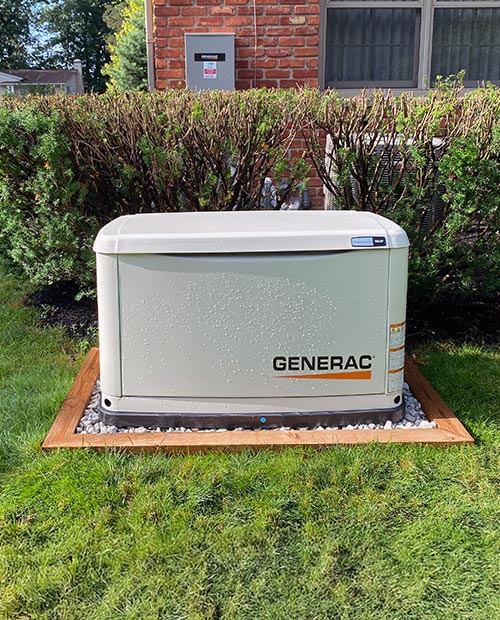
Comfort and Convenience
Q: How do home generators maintain comfort during power outages?
A: Home generators keep your home comfortable by ensuring that critical heating and cooling systems remain operational. During an outage, these systems would typically fail, causing discomfort and potentially dangerous conditions, especially in extreme temperatures. A home generator allows your heating system to keep your living space warm during winter or air conditioning to remain functional in summer heat.
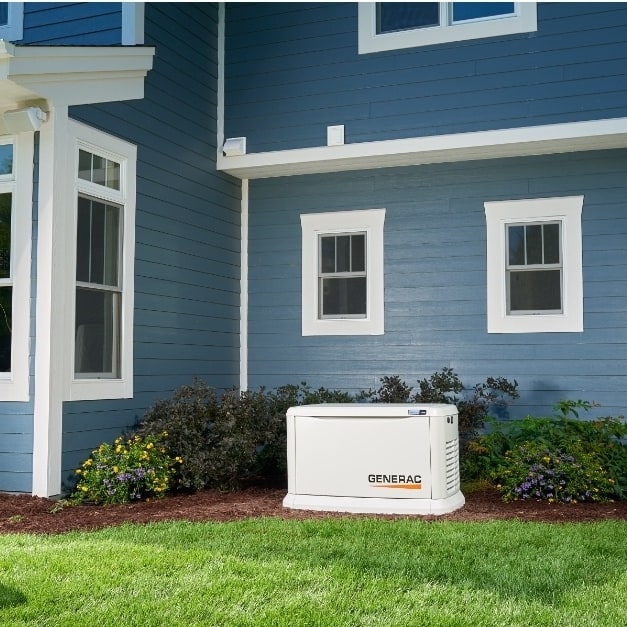
Safety Assurance During Outages
Q: What are the safety advantages of having a home generator during power outages?
A: Home generators offer several safety benefits, ensuring your home remains a secure and comfortable environment even when the electricity goes out.
Q: How do home generators prevent food spoilage during outages?
A: One significant advantage of having a home generator is the ability to keep your refrigerator and freezer running. Without power, perishable food items can spoil rapidly, leading to waste and potential foodborne illnesses. A generator ensures that your appliances remain operational, preserving your food and saving you money.

Types of Home Generators
Q: What are standby generators?
A: Standby generators are permanently installed systems that provide backup power to a home during a utility outage. Unlike portable generators, they are connected directly to the home’s electrical system and are typically fueled by natural gas or propane.
Q: What are the characteristics of standby generators?
A: Standby generators come with several key characteristics, including an automatic transfer switch that activates the generator within seconds after a power outage is detected. They are designed to be weather-resistant, allowing for year-round functionality. Most units have a built-in monitoring system that alerts homeowners to any maintenance needs or operational issues.
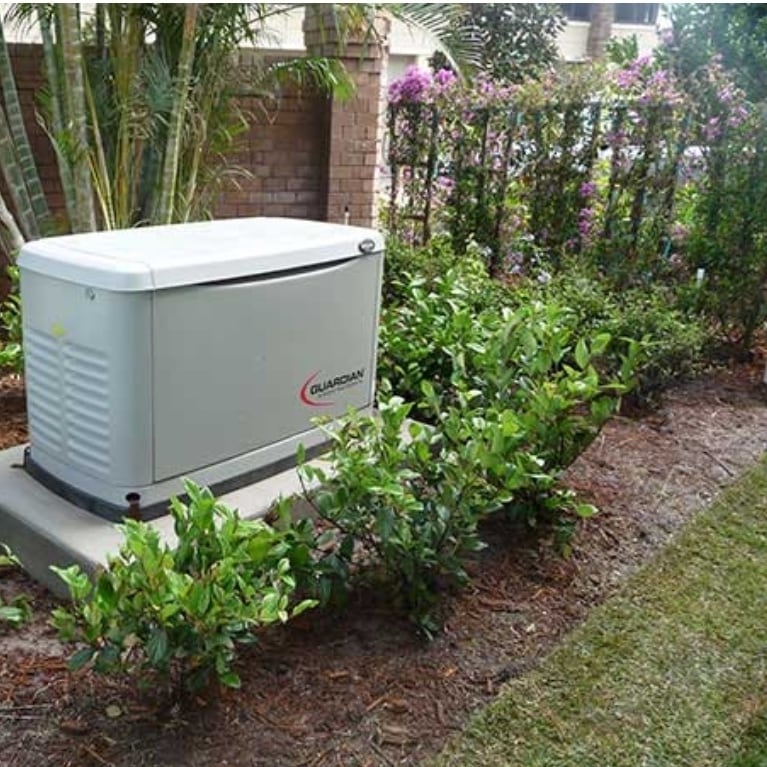
Choosing the Right Generator
Q: How do I assess my power needs for a home generator?
A: Evaluating your power needs starts with identifying the essential appliances and systems you want to keep running during an outage. Create a list of these items and note their wattage requirements, which can usually be found on their labels or in the user manuals. This list may include refrigerators, sump pumps, heating or cooling systems, lights, and any other critical devices. Once you have an estimate of the total wattage, add a buffer of 20-30% to ensure the generator can handle startup surges from appliances that require more power when starting up.
Q: What fuel options are available for home generators?
A: Home generators can operate on various fuel types, primarily natural gas, propane, and diesel. Natural gas generators are convenient if your home is already connected to a gas line, offering a continuous power source without the need to refuel. Propane generators might require gas delivery when stored in tanks but can be easily located and set up. Diesel generators are reliable for longer-term outages but can be more costly and require more maintenance. Consider your access to fuel sources, fuel availability in your area, and the cost of each option when making your decision.
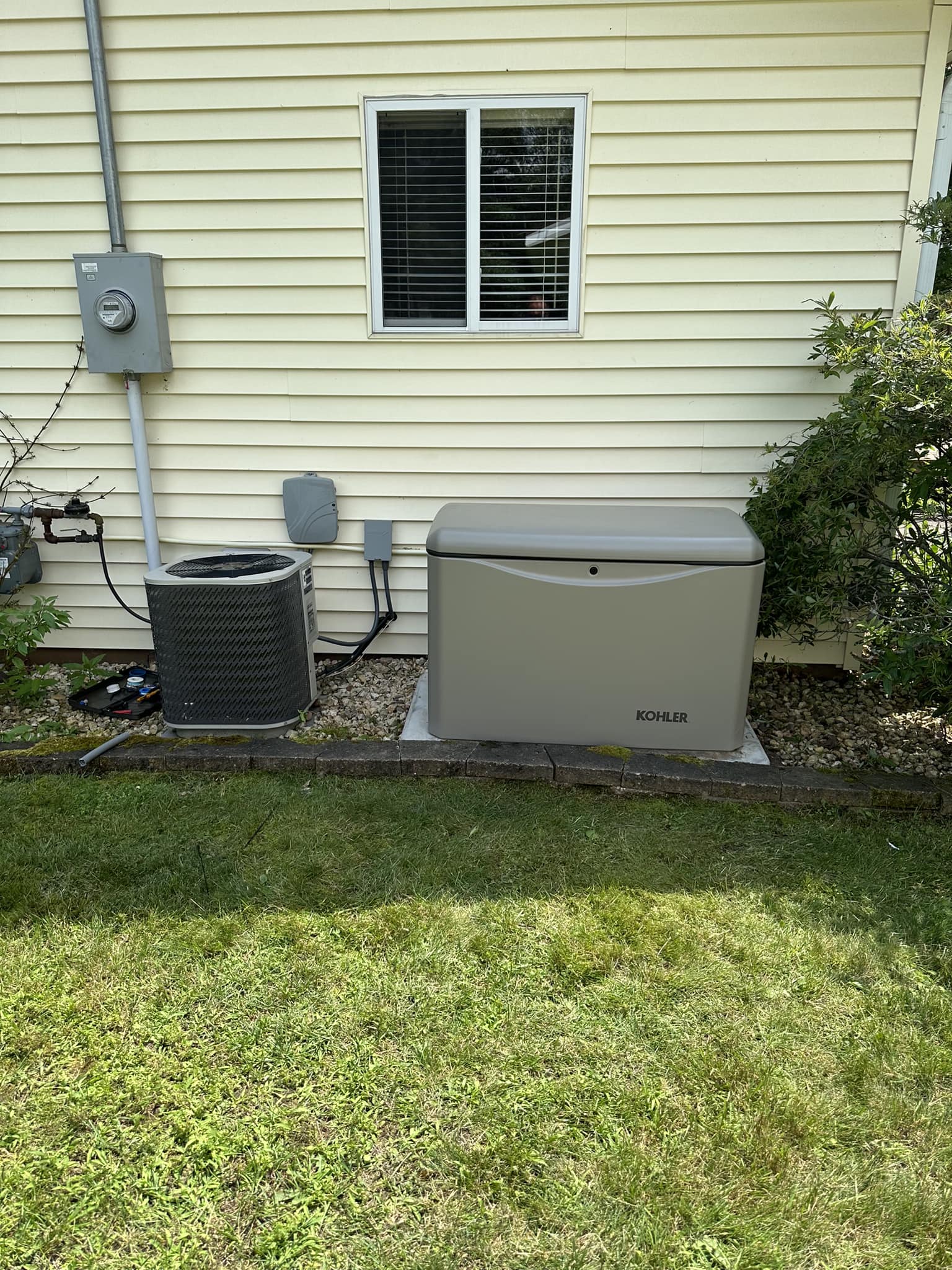
Installation, Maintenance, and Cost
Q: What are the installation best practices for home generators?
A: To ensure optimal performance and safety, home generator installation should be handled by licensed electricians, like those at Vaccarella Electrical Services. The site should be assessed for optimal placement, ensuring the generator is installed away from windows and doors to minimize exhaust fumes. Additionally, a concrete or gravel base is recommended for stability, and proper connections to your home’s electrical system must be established, including an automatic transfer switch.
Q: What are the initial costs associated with home generators?
A: The initial costs of home generators vary depending on factors like size, fuel type, and installation requirements. Portable generators can range from $500 to $2,000, while standby generators typically start at around $3,000 and can go up to $15,000 or more, including installation. It’s essential to factor in costs such as permits, labor, and potential site preparation when budgeting for your generator purchase.
